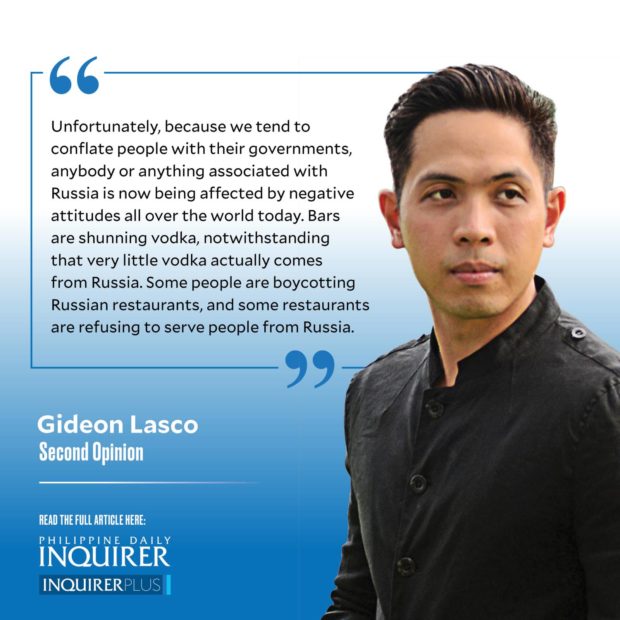People are not their governments

The expedition itself was very memorable: After several days of acclimatization, our first summit bid was foiled by a snowstorm. Fortunately, a window of clear weather opened the following day, allowing four of us—including Everest climber Carina Dayondon who went on to reach all of the Seven Summits—to reach the 5,642-meter peak. After the hike, I spent some time in Moscow, and I made sure to visit its historical sites, not least of which were the Kremlin and the Red Square.
Equally memorable, however, were the people we met along the way—from Anastasia, the travel agent who arranged our logistics, to Yevgeney, our Ukrainian lead guide who—despite being largely emotionless throughout the climb—hugged us at the summit and even gave us a bottle of vodka to celebrate afterward. Speaking of vodka, memorable too was the village doctor who treated one of our teammates’ head injury, using the famous liquor as disinfectant before suturing his wound, then offering the bottle for us to drink.
Article continues after this advertisement—————
As Russian President Vladimir Putin continues his invasion of Ukraine, I think of those people we met and the communities we visited. For the past two years, the pandemic has been painful enough for tour operators all over the world; the sudden isolation of their country would surely weigh heavily on Anastasia’s company, which has already sent emails offering deep discounts for future trips.
I think of Yevgeney, too, who is from Ukraine but probably still lives and works in Russia—one of many people who have deep ties in both countries. The likely loss of income, and the even likelier loss of life in his community—perhaps even within his family—point to an unspeakable suffering shared by millions of his compatriots today.
Article continues after this advertisementUnfortunately, because we tend to conflate people with their governments, anybody or anything associated with Russia is now being affected by negative attitudes all over the world today. Bars are shunning vodka, notwithstanding that very little vodka actually comes from Russia. Some people are boycotting Russian restaurants, and some restaurants are refusing to serve people from Russia.
Beyond the invasion of Ukraine, we also see this conflation in the many other conflicts past and present. For instance, at the height of our maritime tensions with China, some politicians called for a boycott of Chinese products, while other commentators wrongly questioned the loyalties of Chinese Filipinos, conflating them not just with the Chinese government, but with the citizens of China. Conversely, some Chinese netizens called for a boycott of bananas and mangoes from the Philippines after the Unclos ruling in 2016, and phrases like “starve the Filipinos to death” circulated on Weibo.
Such actions and pronouncements are not helpful because they contribute to concretizing toxic, divisive, and often racist notions of nationalism. Moreover, they can lead people to think that they are the ones being targeted by other nations when wars are waged by their leaders (who, it is important to add, will only benefit from citizens who think they’re under attack and that their leaders are defending them).
Of course, this is not to stay that people cannot be complicit with their governments; even in Russia today, beyond the unholy endorsement from Patriarch Kirill, there seems to be popular support for Putin’s war, notwithstanding courageous voices who oppose it like the jailed Alexei Navalny, Maria Ressa’s Nobel Peace Prize corecipient Dmitry Muratov, and Marina Ovsyannikova, who boldly denounced the war on state television.
But even such “popular support” is often a result of state disinformation and propaganda, and the primary responsibility still lies on the people who actually decide to take their countries to a path of destruction, oppression, and war.
We need to direct our outrage to the perpetrators of violence and injustice, not to entire peoples who are often victims themselves of their own leaders and governments.
—————















